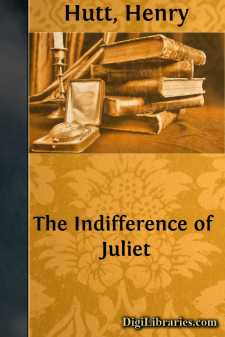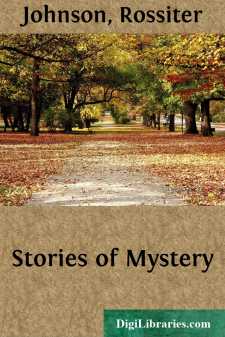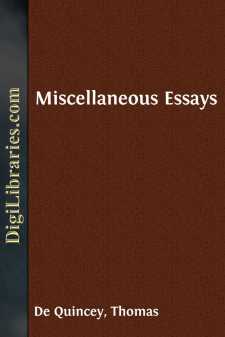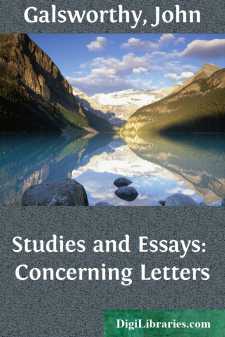Literary Collections
- American 84
- Ancient, Classical & Medieval 14
- Asian 1
- Australian & Oceanian 1
- Canadian 55
- Continental European 121
- English, Irish, Scottish, Welsh 179
- Essays 160
- General 24
- Letters 46
- Middle Eastern 1
Literary Collections Books
Sort by:
by:
Henry Hutt
I.—An Audacious Proposition Anthony Robeson glanced about him in a satisfied way at the shaded nook under the low-hanging boughs into which he had guided the boat. Then he drew in his oars and let the little craft drift. “This is an ideal spot,” said he, looking into his friend’s face, “in which to tell you a rather interesting piece of news.” “Oh, fine!” cried his friend, settling...
more...
by:
Rossiter Johnson
THE GHOST. BY WILLIAM D. O'CONNOR. t the West End of Boston is a quarter of some fifty streets, more or less, commonly known as Beacon Hill. It is a rich and respectable quarter, sacred to the abodes of Our First Citizens. The very houses have become sentient of its prevailing character of riches and respectability; and, when the twilight deepens on the place, or at high noon, if your vision is...
more...
ON THE KNOCKING AT THE GATE, IN MACBETH. From my boyish days I had always felt a great perplexity on one point in Macbeth. It was this: the knocking at the gate, which succeeds to the murder of Duncan, produced to my feelings an effect for which I never could account. The effect was, that it reflected back upon the murder a peculiar awfulness and a depth of solemnity; yet, however obstinately I...
more...
by:
Honore de Balzac
I There are houses in certain provincial towns whose aspect inspires melancholy, akin to that called forth by sombre cloisters, dreary moorlands, or the desolation of ruins. Within these houses there is, perhaps, the silence of the cloister, the barrenness of moors, the skeleton of ruins; life and movement are so stagnant there that a stranger might think them uninhabited, were it not that he...
more...
by:
Bernard Shaw
FOREWORD A revolutionist is one who desires to discard the existing social order and try another. The constitution of England is revolutionary. To a Russian or Anglo-Indian bureaucrat, a general election is as much a revolution as a referendum or plebiscite in which the people fight instead of voting. The French Revolution overthrew one set of rulers and substituted another with different interests and...
more...
THAT WE SHOULD NOT JUDGE OF OUR HAPPINESSE UNTILL AFTER OUR DEATH scilicet ultima semper Expectanda dies homini est, dicique beatus Ante obitum nemo, supremaque funera debat. [Footnote: Ovid. Met. 1, iii. 135.] We must expect of man the latest day, Nor ere he die, he's happie, can we say. The very children are acquainted with the storie of...
more...
PART 1 — CAMBRIDGEI"The cow is there," said Ansell, lighting a match and holding it out over the carpet. No one spoke. He waited till the end of the match fell off. Then he said again, "She is there, the cow. There, now." "You have not proved it," said a voice. "I have proved it to myself." "I have proved to myself that she isn't," said the voice. "The...
more...
by:
Honore de Balzac
I. A BRETON TOWN AND MANSION France, especially in Brittany, still possesses certain towns completely outside of the movement which gives to the nineteenth century its peculiar characteristics. For lack of quick and regular communication with Paris, scarcely connected by wretched roads with the sub-prefecture, or the chief city of their own province, these towns regard the new civilization as a...
more...
by:
George Gissing
CHAPTER I It was Mumford who saw the advertisement and made the suggestion. His wife gave him a startled look. 'But—you don't mean that it's necessary? Have we been extrav—' 'No, no! Nothing of the kind. It just occurred to me that some such arrangement might be pleasant for you. You must feel lonely, now and then, during the day, and as we have plenty of room—'...
more...
by:
John Galsworthy
A NOVELIST'S ALLEGORY Once upon a time the Prince of Felicitas had occasion to set forth on a journey. It was a late autumn evening with few pale stars and a moon no larger than the paring of a finger-nail. And as he rode through the purlieus of his city, the white mane of his amber-coloured steed was all that he could clearly see in the dusk of the high streets. His way led through a quarter but...
more...











